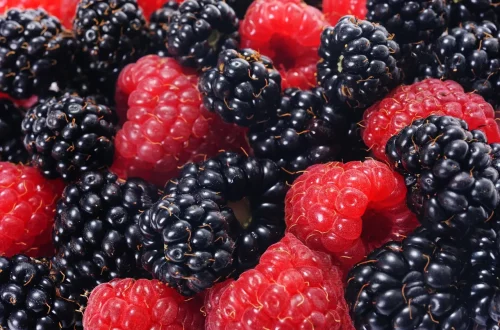
Kachava vs Huel: Which Meal Replacement is Right for You?
In today’s fast-paced world, many individuals are seeking convenient solutions to maintain a balanced diet without compromising health or nutrition. Meal replacement products have surged in popularity as a practical alternative for those looking to save time while still ensuring they consume the necessary nutrients. With a plethora of options available on the market, it can be overwhelming to determine which product best meets your dietary needs and lifestyle preferences. Among the leading contenders are Kachava and Huel, both of which have garnered attention for their unique formulations, flavors, and targeted benefits.
As people become more health-conscious, the demand for meal replacements that not only provide sustenance but also support overall well-being has increased. This trend has encouraged manufacturers to innovate and refine their offerings, leading to diverse choices that cater to varying dietary requirements. Whether you’re an athlete seeking to enhance performance, a busy professional looking for quick meal solutions, or someone aiming to incorporate healthier options into their daily routine, understanding the differences between these products can empower you to make informed decisions.
Navigating the world of meal replacements involves assessing factors such as nutritional content, ingredient quality, taste, and cost-effectiveness. This exploration into Kachava and Huel will provide essential insights to help you determine which meal replacement aligns with your dietary goals and lifestyle.
Understanding Kachava: Ingredients and Nutritional Profile
Kachava is a plant-based meal replacement that prides itself on its all-natural ingredients and comprehensive nutritional profile. Crafted to deliver a balanced array of macronutrients and micronutrients, Kachava focuses on whole food ingredients that are both nutritious and delicious.
One of the standout features of Kachava is its commitment to using high-quality, organic ingredients. The blend includes a variety of superfoods, such as chia seeds, maca root, and green tea extract, which contribute to its rich nutrient density. This formulation not only provides essential vitamins and minerals but also supports overall health and wellness. For instance, chia seeds are a great source of omega-3 fatty acids, promoting heart health, while maca root is known for its potential energy-boosting properties.
Kachava offers a balanced macronutrient distribution, boasting a mix of proteins, healthy fats, and carbohydrates. Each serving typically contains around 25 grams of protein, derived from sources such as pea protein and brown rice protein, making it an excellent option for those looking to maintain muscle mass or support post-workout recovery. Furthermore, the inclusion of healthy fats from sources like coconut and flaxseed helps to keep you satiated and energized throughout the day.
Another notable aspect of Kachava is its low glycemic index, making it suitable for those managing blood sugar levels. The product is free from artificial additives, preservatives, and refined sugars, aligning with the growing trend toward clean eating. Additionally, Kachava is gluten-free and vegan, appealing to a wide range of dietary preferences.
In summary, Kachava stands out for its commitment to quality ingredients, balanced nutrition, and a focus on overall health. Whether you’re looking to replace a meal or simply supplement your diet, Kachava’s diverse nutritional offerings make it a compelling choice for health-conscious consumers.
Exploring Huel: Versatility and Convenience
Huel has carved a niche for itself in the meal replacement market, known for its versatility and convenience. This product line offers a range of options, including ready-to-drink meals, powder mixes, and snacks, catering to different consumer preferences and lifestyles. Huel’s approach emphasizes practicality without sacrificing nutritional value, making it a popular choice for busy individuals.
One of the defining characteristics of Huel is its complete nutritional profile. Each serving is designed to provide all essential nutrients, including carbohydrates, protein, fats, vitamins, and minerals. The formulation typically includes a blend of oats, pea protein, brown rice protein, and coconut, ensuring a well-rounded nutritional experience. This comprehensive approach is particularly appealing to those seeking a meal replacement that can serve as a primary source of nutrition.
Huel also places a strong emphasis on customization. With various flavors and formulations available, consumers can tailor their experience to suit their taste preferences. The powder can be easily mixed with water or plant-based milk, allowing for a quick and convenient meal solution. Additionally, Huel offers a ready-to-drink version for those who prefer immediate consumption without the need for preparation.
Another aspect worth noting is Huel’s commitment to sustainability. The brand focuses on sourcing ingredients responsibly and minimizing its environmental impact. This commitment resonates with consumers who prioritize eco-friendly products in their purchasing decisions. Huel’s packaging is also designed with sustainability in mind, further enhancing its appeal to environmentally conscious individuals.
In conclusion, Huel stands out for its versatility, complete nutrition, and commitment to sustainability. Whether you’re looking for a quick meal on the go or a versatile product to incorporate into your daily routine, Huel offers a range of solutions that cater to various lifestyles and dietary needs.
Comparing Taste and Texture: Kachava vs Huel
When it comes to meal replacements, taste and texture play crucial roles in determining consumer preference. Both Kachava and Huel have developed unique flavors and consistencies that cater to different palates, making it essential to compare these aspects to find the right fit for you.
Kachava is known for its creamy texture and rich flavors, which are achieved through its blend of whole food ingredients. The product tends to have a thicker consistency when mixed with water or plant-based milk, which many consumers find satisfying. Kachava’s flavor options, such as vanilla, chocolate, and berry, are crafted to provide a delicious experience that feels indulgent while remaining nutritious. The use of natural sweeteners and flavorings enhances the overall taste without relying on artificial ingredients.
On the other hand, Huel offers a lighter texture that some users may prefer, especially when mixed with water. The powder tends to create a smooth shake that is easy to drink quickly, making it a convenient option for those in a hurry. Huel’s flavor offerings are diverse, including options like chocolate, vanilla, and berry, as well as unique flavors such as salted caramel and coffee. This variety allows consumers to experiment and find the flavor that suits them best.
Ultimately, taste and texture preferences can be highly subjective. Some individuals may prefer Kachava’s creaminess and rich flavors, while others might gravitate towards Huel’s lighter consistency and broader range of flavors. It’s recommended to try samples of both products to determine which aligns more closely with your personal taste preferences.
Cost Considerations: Is It Worth the Investment?
When evaluating meal replacement options, cost is often a significant consideration for consumers. Both Kachava and Huel offer different pricing structures, which can influence your decision based on budgetary constraints and perceived value.
Kachava tends to be on the higher end of the price spectrum. This premium pricing reflects its use of high-quality, organic ingredients and its commitment to providing a nutrient-dense meal replacement. While some consumers may view the cost as a worthwhile investment in their health, others may find the price point a limiting factor, especially if they plan to use the product regularly.
Conversely, Huel generally offers a more affordable solution, with competitive pricing that appeals to a broader audience. The flexibility of purchasing options, including bulk purchases and subscription services, can further enhance cost savings for regular users. Huel’s range of products also allows consumers to select options that fit their budget, whether they prefer powders, ready-to-drink meals, or snacks.
In assessing the value of these meal replacements, it’s essential to consider not only the price but also the overall nutritional benefits and convenience they provide. For individuals seeking a quick, nutrient-rich meal solution, investing in either Kachava or Huel can be a smart choice, provided it fits within their budget.
In summary, understanding the cost implications of Kachava and Huel is crucial in making an informed decision about which meal replacement best suits your needs. Balancing quality, nutrition, and affordability will ultimately guide you toward the right choice for your lifestyle.
It’s important to note that this article is not intended as medical advice. If you have specific health concerns or dietary needs, please consult a healthcare professional for personalized guidance.




